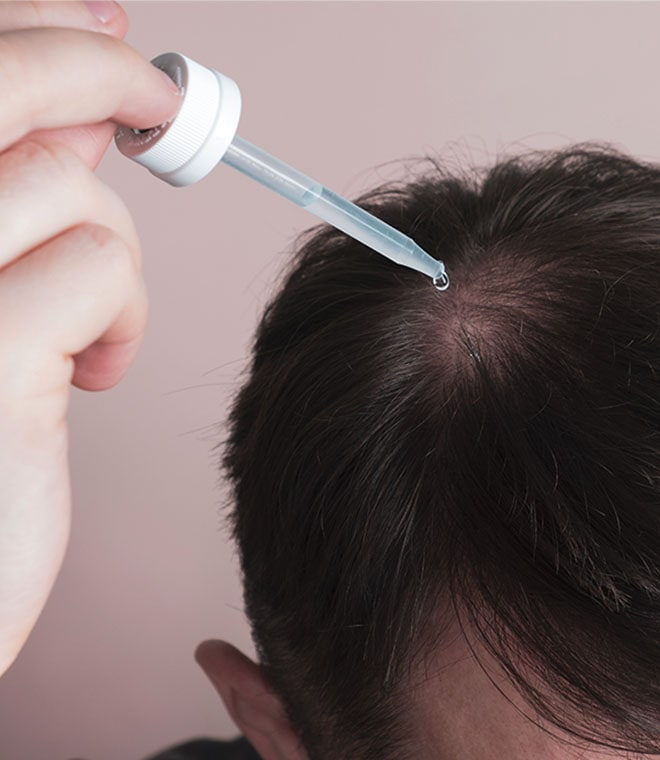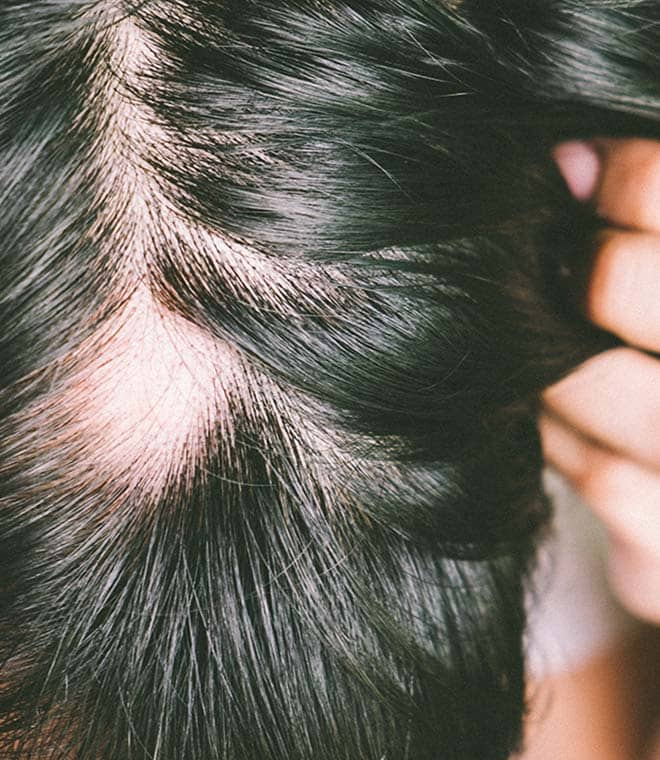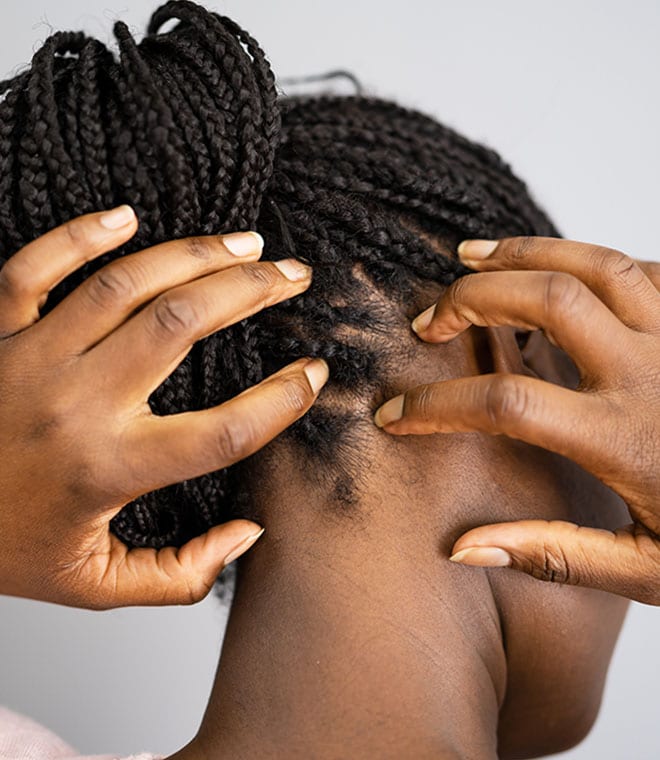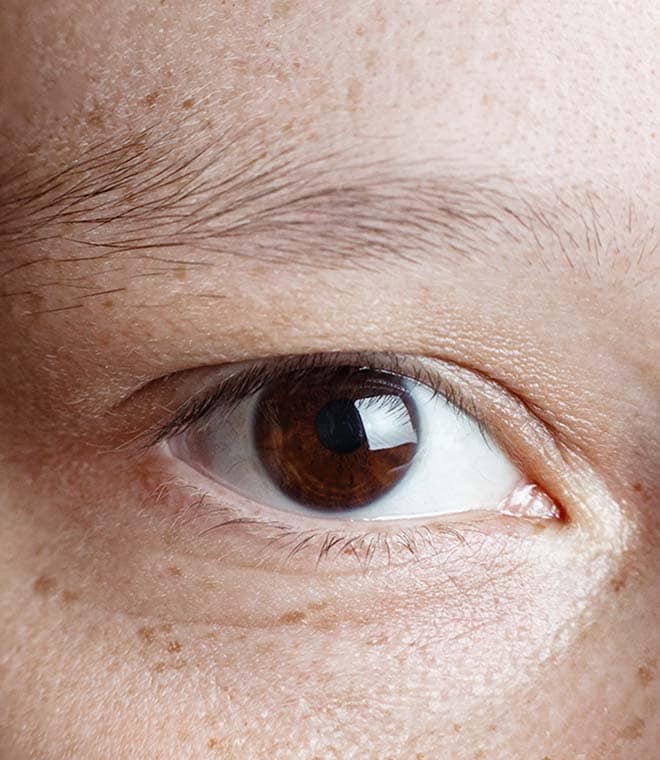Health
After surgery hair loss: Causes and solutions
By Anna H. Chacon, MD, Fellow of the American Academy of Dermatology Jan 30, 2025 • 5 min
Recuperating from surgery is often a lengthy process that includes rest and rehabilitation. For some people, post-surgical recovery also brings an unexpected symptom: hair loss. Although the scientific community has not studied this issue rigorously, the problem is not uncommon. It can be helpful to understand the causes of hair loss after surgery and what you can do to care for your hair.
Why does loss of hair after surgery occur?
Telogen effluvium is typically the diagnosis given to someone experiencing hair loss after surgery. Physical or emotional stress can cause this type of hair loss after surgery. When the body undergoes a traumatic experience, such as major surgery, the shock to the system may cause telogen effluvium. When this happens, the body begins to rapidly shed hairs in a specific phase of growth. Hair loss after surgery is usually temporary, and in many cases hair growth returns within six to eight months.
How hair grows
Every hair on your head emerges from follicles, and these follicles go through three stages:
- Anagen phase: Growth phase that lasts from two to six years
- Catagen phase: Short transition period
- Telogen phase: Resting period that usually lasts for around three months
Usually, about 85% to 90% of the hairs on a person's head are in the anagen phase, and about 10% to 15% are in the telogen phase. At the end of the telogen phase, your body sheds the hair. The growth process then repeats with the follicle entering the anagen stage again. An average adult loses about 100 strands of hair per day due to this natural process.
What happens when someone has telogen effluvium?
In people with telogen effluvium, the shedding process of telogen hairs accelerates, and daily shedding becomes noticeable. Additionally, hairs in the anagen phase rapidly move to the telogen phase and fall out. Individuals with telogen effluvium will likely notice more hair coming out when they shampoo and style their hair. They may also find more hairs on their clothing.
Those with telogen effluvium may lose up to 70% of scalp hair in a matter of months. However, some people lose significantly less. This type of hair loss doesn't occur in a defined pattern. Instead, hair loss occurs all over the scalp.
Causes of telogen effluvium
Studies have yet to uncover how physiological and emotional stress trigger telogen effluvium. There are many different causes of telogen effluvium, including surgery, psychological stress, childbirth, rapid weight loss and even some medications.
Solutions for loss of hair after surgery
Post-surgical hair loss is usually temporary. For many people, the increased shedding subsides within six to eight months. After that, the hair growth cycle typically returns to normal. Hair often grows back in the affected follicles.
In the meantime, you can follow these steps to help care for your hair:
- Cleanse with a mild shampoo and follow with a conditioner to keep hair hydrated. The right shampoo and conditioner can make a difference.
- Use a leave-in conditioner for added moisture benefits. Volumizing conditioners may help your hair look fuller.
- Avoid chemical treatments like hair dyes, perms and relaxers until hair loss subsides
- Limit the use of hair dryers, flat irons and curling irons
- Brush and comb your hair gently
- Eat a well-balanced diet rich in fruits, vegetables, whole grains and lean protein
There are many potential causes of hair loss. If you're experiencing post-surgery hair loss, you may have telogen effluvium. However, an underlying medical condition, a nutritional deficiency or another problem may be responsible for your symptoms. It’s important to see your healthcare provider for a confirmed diagnosis. Your provider can run tests to help determine the cause of your symptoms and recommend treatment if needed.
Updated by Rebeca Thomas RN, BSN January 2025.
Sources:
- https://www.pennmedicine.org/for-patients-and-visitors/patient-information/conditions-treated-a-to-z/hair-loss-alopecia-areata
- https://www.aocd.org/page/telogeneffluviumha
- https://www.aad.org/public/diseases/hair-loss/treatment/tips
- https://www.ncbi.nlm.nih.gov/books/NBK513312/
- https://www.ncbi.nlm.nih.gov/books/NBK499948/




